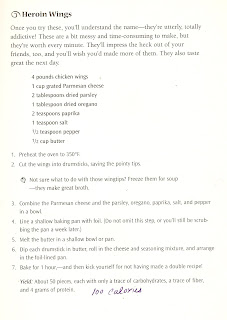How Clean is Your Kitchen?
Dinner Diva
This is a great article to share with your friends & family
This is a great article to share with your friends & family
How Safe Is Your Kitchen?
By Leanne Ely, C.N.C.
By Leanne Ely, C.N.C.
Dirty dining reports are becoming quite popular with local news stations all around the country and are grossing out America at the same time. I'm sure you've seen it before; local reporters go into the kitchens of restaurants to see what health code violations they can find. I'll spare you the gory details, but it's usually one more reason I prefer to cook my meals at home.
But let me ask you-- how would your kitchen stand up to one of these inspections? I like to keep my sink shiny (thanks to FlyLady) and my pantry neat (thank you Rubbermaid) but as you may have seen in my pantry makeover blog just about a year ago, I found an old sprouting potato hiding in the dark recesses of my pantry. It happens!
So how safe is your kitchen? When is the last time you gave your fridge and freezer a good disinfecting? How old is the shelf liner in your cabinets? Are there crumbs in your flatware drawer? What's hiding on your cutting board, under your stove, or behind the fridge?
There are some great inexpensive basic household cleaners you can use to get your kitchen sink (and everything else) shiny and safe.
Sanitize & Disinfect
Keep surfaces, counters, cabinets, appliances, floors and your fridge clean with plain old household vinegar. I like plain old white vinegar. It is effective at preventing bacteria growth. For your counters, just put straight vinegar into a bottle and spray directly on the counters. Wash with a wet cloth that you rinse often in hot water. If you let the vinegar sit on the counters a bit it will help further sanitize. You can use this product safely on any surface and it's inexpensive, does not pollute the environment and there is no risk of chemical exposure like with bleach. You may want to dilute a little for floors. Always pay attention to cracks and crevices because that is where bacteria can hide and thrive. Use an old tooth brush to get to those hard to reach spaces.
Contain
Store your food in only BPA free containers. I recommend Rubbermaid for a multitude of reasons. By putting your dry ingredients like rice, flour, cereals, mixes, etc. in containers with sealable tops, you keep them fresher longer and prevent infestations from critters hitching a ride home from the supermarket (like wevils or roaches, ewww!). Keep food off the floor by installing shelves in your pantry. By using shelving and keeping your food in sealed containers, you will shun the creepy crawlies that want to get in!
Toss
Most cooked food does not last very long in the fridge, 2, 3 days, 4 days, tops. If you are not sure that you are going to eat it right away and want to avoid waste, freeze leftovers in single serving freezer safe containers. This can be handy when you are in a rush or even if you have unexpected guests and need to add a serving to your meals. Make sure you mark what is in your containers with a Sharpie or other marker and don't forget to date it.
Schedule
Create a cleaning schedule that the whole family can follow. Schedule tasks like cleaning the oven, going behind the fridge, and giving each cupboard a wipe down throughout the year so it is not such an overwhelming task. Certain maintenance cleaning tasks can be done daily, weekly, monthly, and yearly. Decide what works best for your family then schedule them out. With the New Year approaching. now is a great time to get these things on the calendar for next year.
Remember, it is much easier to keep things clean than to let them get out of control. You can actually save time keeping this task up and the whole family will benefit from food prepared in a safe and clean kitchen.
| ||
Lena Austin
http://depravedduchess.blogspot.com


Comments